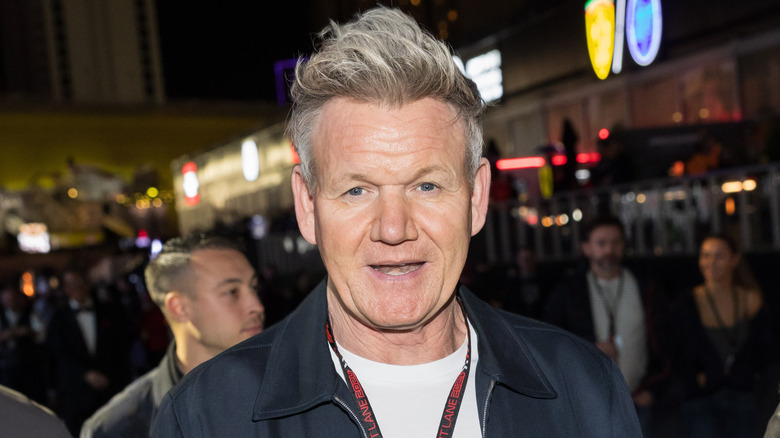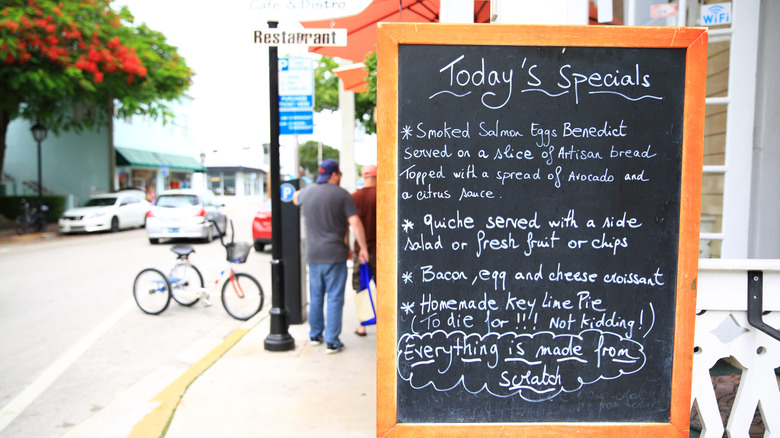The Menu Red Flag Gordon Ramsay Says To Avoid At Restaurants
We may receive a commission on purchases made from links.
Gordon Ramsay rose to fame on his reality TV shows, "Hell's Kitchen" and "Kitchen Nightmares," that showcased his explosive, profanity-laden outbursts and drew millions of viewers. But the celebrity chef is also a wildly successful restaurateur – Gordon Ramsay owns dozens of restaurants around the world – so his advice about what to order when eating out carries weight. One of his restaurant rules is to steer clear of ordering a special if there are too many of them on the menu.
Ramsay explained that if there a lot of specials, they really aren't what they're claiming to be. "Specials are there to disappear throughout the evening. When they list 10 specials, that's not special," he told the Daily Mail. He's also not a fan of the "soup du jour," having suggested the soup could be made and then served several days in a row. Ramsay's not the only celebrity chef who publicly disdained some restaurant specials, as the late Anthony Bourdain famously said in his 1999 book, "Kitchen Confidential," to never order fish on Monday because fish deliveries aren't made over the weekend so it won't be fresh. (He had a change of heart years later about whether you should avoid ordering fish on certain days.)
The problem with restaurant specials is that instead of being something creative or exceptional, they are often dishes made with ingredients that are leftover from previous days and need to be used up or they'll go bad. At the same time, because patrons believe they are getting something special, restaurants can charge more for them. This is partly why you won't see chefs ordering the specials at restaurants.
How to know if a restaurant special is worth ordering
The good news is that some restaurant specials really are worth having. Perhaps the chef will be trying out a new dish, or cooking with seasonal ingredients, or preparing something with a particularly good ingredient they got that inspired them. Good chefs are very creative, as demonstrated by dishes like Gordon Ramsay's English breakfast pizza mash-up, and their specials worth their name are the ones you want to eat. But you have to be able to suss out when that's the case.
Higher-end restaurants are more likely to have real specials. A shorter menu is also a good sign. Having a long menu means a restaurant has to order a lot of food and estimate how much they'll need. Many ingredients will be left over and have to be used up, and can end up in necessity specials, not creative ones.
Be wary of specials that have a pricey meat in a pasta or stew, or hide it under a sauce — or if the price of the special is much less expensive than the rest of the menu. Ask the server about the specials and what's good from the chef, by all means. But if they seem overeager for you to order a special, then that's a red flag, too.

